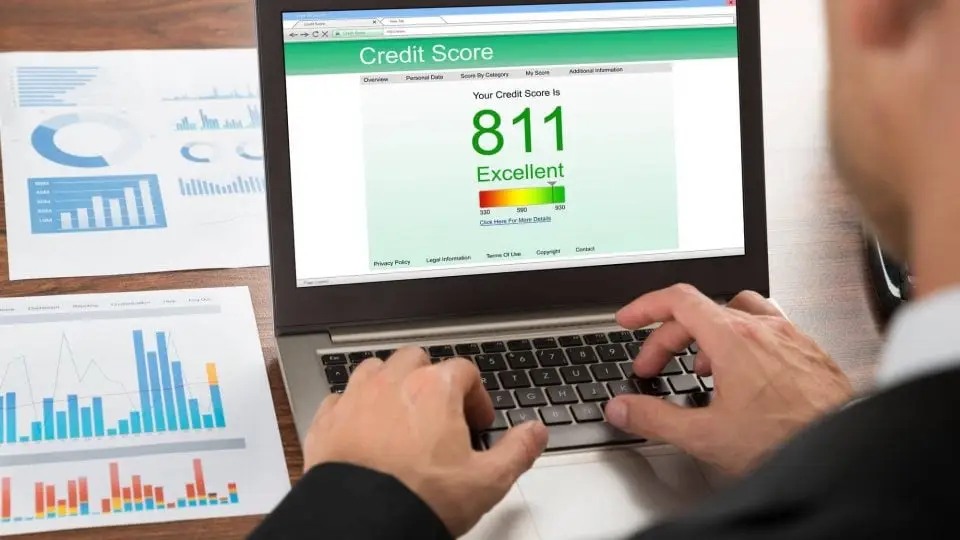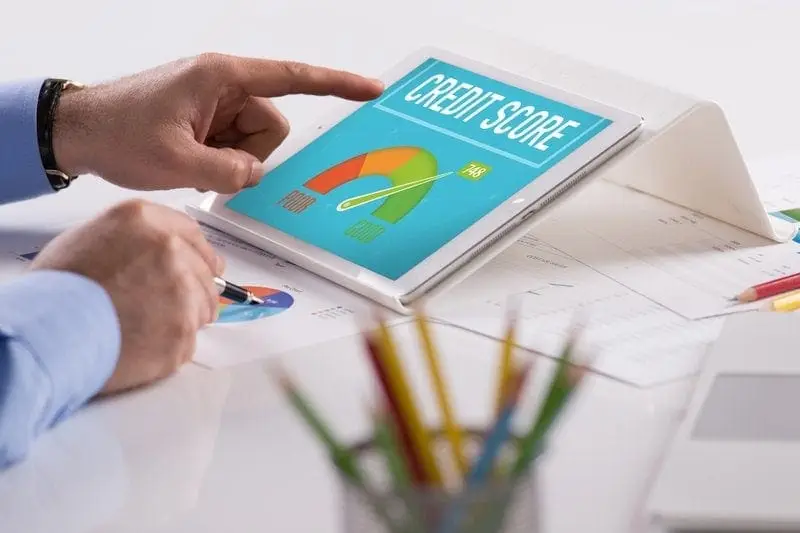Master Your Credit Score
Amex might double points for select members, safeguarding your rewards against upcoming changes to redemption rates!
Ever tried to figure out why you were declined for a credit card or wondered how financial providers know so much about you? Say hello to your credit score. Let’s rephrase that; it’s not actually your score. In fact, your score is owned by a bunch of private corporations who call themselves Credit Bureaus (sounds fancy and legitimate).

Some History
In Australia we have 3 credit bureaus who gather data on us (actually there are 4 but the fourth one is for Tasmanian residents only, and it’s called Tasmanian Collection Service), those are Equifax (formerly Veda), Experian and D&B (Dun & Bradstreet).
Equifax and D&B are American while Experian comes from the United Kingdom, all come from humble beginnings.
Equifax started out back in 1898 in a small grocery store in Tennessee where the shop owner collected information about his customers and compiled a list of those that were trustworthy/creditworthy. He would then distribute this list to other business owners for free. The demand for the service was through the roof and by 1920 Retail Credit (now Equifax) had 37 branches in North America.
While nowadays everything is done digitally, back in the day these companies would have private investigators checking customers to determine their creditworthiness and assign a credit score.
The reason these companies exist in the first place is that they managed to convince other businesses to pool their data about the customers so they could all benefit.
Fast forward to today and these companies have a massive amount of private data on file about us, and banks, utility companies and so forth still provide them with data, only to get the data sold back to them! Ironic isn’t it?
Can I Opt-Out?
Unless you’re living entirely off the grid and don’t rely on anything and anyone there’s not much chance you won’t get tracked by the credit bureaus. While the government regulates the bureaus, they are also endorsed by them as the service is invaluable to big business.
How your score works
Now that you understand the business model, it’s important to know how your credit score works. Well, at least we will try to figure it out based on anecdotal evidence since the credit bureaus won’t actually tell you how exactly scores are calculated.
- Equifax: Each credit bureau has a different points system to calculate your score. Equifax has one which ranges from 0-1200.
- Experian: The range for Experian is lower and goes from 0-1000.
- D&B: Dunn and Bradstreet also works with a range from 0-1000.
Obviously, since each agency is independent, scores do vary, and it doesn’t always make sense. For example, I find that my Experian score is much better compared to my D&B score which always seems to be the worst of the bunch.
It’s also interesting to note that not everyone will query the same databases, for example, my recent Vodafone plan sign up resulted in a hit on my Equifax and D&B score but Experian didn’t report it (yet). On the other hand, I find that a lot of credit card companies don’t seem to care too much about D&B and therefore Experian and Equifax show a much better overall picture of my finances. Of course, these are all personal examples so it might be entirely different for you.
What’s on your report?
Here’s some basic info that’s on your report:
- Full name
- Date of birth
- Current address (and the previous 2 addresses)
- Current employer (or last employer)
- Drivers license number
- Amount of credit enquiries
- Repayment history
- Credit limits
What Happens When you apply for credit?
Essentially the company or financial provider extending a line of credit to you will check your creditworthiness to ensure you won’t default on payments and are in a good financial position. This enquiry will result in points being taken off your score. The amount of points varies, and there’s no real data we can rely on to predict the impact.
The easiest way to measure it is by looking at your score after you’ve made an application. To give you an example, my recent Vodafone plan sign up resulted in a 58 point reduction on D&B and a 50 point reduction on Equifax; nothing was reported on Experian.
From personal experience, it might take 1 to 2 months to gain those points back or get an even better score. This is provided that I A) make repayments on my cards and B) don’t apply for more “lines of credit”.
This year we’ve seen the introduction of so-called “positive reporting”, it’s still being rolled out, but you will see that most providers now list the total amount of credit you have with them and the also report when you make payments on time.
Overall this is great because it seems to improve scores faster from what I’ve seen. It also makes it easier for providers to tell whether you’re creditworthy or not. The only downside with positive reporting is that providers can now see how many accounts you have open and what the total limits are. For points aficionados who jump from deal to deal or those who need big credit card limits this isn’t ideal since a lender might now “judge” you based on how many cards you have open or how much total credit you have available to you.
I have no idea if this is true, but if I were a bank I would question why someone would need another credit card when they already have 8 active accounts… unless they’re an avid points collector 😉
On the other side, now that they can see that you’ve (hopefully!) been paying your balances on time and never missed a payment. Therefore there should be less reason not to approve a card/phone/loan or whatever it is you’re trying to apply for.
What’s a good score?
Personally I hover around the good to very good with Experian and Equifax while my D&B score always seems to be in the Fair/Average area. To give you an idea about how many cards I applied for this year, the number is 4 in total and the year before 6. The total amount of cards that I have active right now is 9, all of which get their balance paid in full every single month. For some, 9 cards might seem like a lot, but every card has a specific purpose (that’s for another post).
How to build a credit score?
Isn’t it ironic that to build a credit score you need to have some form of credit in your name? It’s like applying for a job, but they’re only asking for applicants with “experience”. If you’re young and just getting started with personal finance/credit cards/mortgages/loans etc. it is a lot harder to build that score to a level where you’re seen as a “creditworthy” individual.
Once again there’s no real science on how to build up your score so don’t take this as financial advice, it’s purely anecdotal and based on my personal experiences. For me, I got started with a phone plan which seems to be the easiest way to get an impact on your score.
My first line of credit in Australia was Commbank offering me an overdraft account which they automatically approved. Then I moved to a basic credit card (which also was one of the worst reward credit cards at the time) the Commbank Awards card, which was bundled with an Amex.
Back then I didn’t have a clue about reward credit cards but when you’re starting out the top tier products are usually out of reach because they have higher income requirements, bigger minimum limits and seem to require a bit more credit history on your file.
The other thing that you want to make sure of is that credit bureaus know who you are so it’s important that you get your credit report from them and see how much info is in there. Stuff like a drivers license, utility bills in your name and correct address info will ultimately help them to build a better profile for you. Just remember, it takes time and building a score is done over years not days or months.
Rookie Mistakes To Avoid
There are a few things that can really set you back, and I wish I’d knew about this when I started out. The worst one being multiple applications in a short amount of time. Let me set the scene: you’re online one day looking for a good credit card deal or phone plan, and you decide to pull the trigger. You think you’ve got a good score and meet all the requirements, but for some reason, you get the instant message: DECLINED
You have no idea why that happened; maybe it was a technical glitch on the site? So you try again — same message: DECLINED.
When you see a message along those lines, it’s important not to keep trying because all you will do is set off alarm bells. Essentially the systems will trigger a denied response when it appears that you’re in some sort of financial distress and desperate for credit, essentially it will have a significant negative impact on your score, and it will take some months to recover from this.
What you can do, is note down your reference number and call whoever you’re trying to get a line of credit from. Usually, they won’t tell you the reason, but if it was a simple thing that needed to be clarified, you might be able to ask for a reconsideration. During a reconsideration request, they will look through your application manually and request any missing info to process it.
Missing a payment
Missing a payment is a huge no-no when it comes to any type of loan. It will negatively impact your score, and with positive reporting, it will stay on your file for a long time to come. I would recommend setting up direct debits to your bank account so that you don’t accidentally miss a payment.
Keep in mind that there is a difference between minimum payments and full balance payment. Obviously, it’s not ideal to only make the minimum payment since that way you are going to accrue interest on the outstanding amount (which quickly erodes any points benefits you might get), but it is perfectly fine because that’s how banks make money. However, if you’re serious about earning points: pay your balance in full each month. If you can’t, learn how to budget first before getting involved with credit.
Keep in mind that not paying bills will also go on your credit score. These are reported when you’re more than 60 days late and when the bill is at least $150 or more. (think utilities such as phone, water, gas, electricity).
For credit cards, home loans, personal loans, car loans and retail offers such as in-store credit you will get a negative impact if the late payment is more than 14 days.
How long does info get retained?
5 years – how long info about a bankruptcy stays on your credit report.
5 years – how long info about a payment default for consumer credit such as a credit card or utility bill of more than 60 days stays on your file.
2 years – how long info about a delay of more than 14 days in paying your credit card, home loan or personal loan stays on your file.
Credit Score Myths
Some people think that by checking your credit score it sends a negative signal; this is simply not true. In fact, you should check your score at least once a month. If there is a change and you don’t know why; you may be the target of identity theft which can ruin your score if you don’t manage it quickly.
Checking your score for free
Obviously, since credit bureaus are making money selling your data, they are required by law to provide you with a free report at least once a year and also offer a dispute service so you can request removal of enquiries that weren’t authorised. You can get your score direct, but this usually takes time. The reason it takes a while for your request to be heard is that credit bureaus also offer paid services which allow you to get more details and also monitor potential identity theft. Of course in the age of “I want it now” they rely on people being too inpatient to then sell them a subscription to one of their many services.
Lucky for us there are alternatives. Before I mention them, I will explain their business model to you, so you don’t think they are providing your score out of the goodness of their hearts.
There are 3 reliable websites which provide you with score updates for free with the data from the 3 major credit bureaus (there are more out there but these are the ones I use). The reason they do that is that they make money offering you credit card/car loan/mortgage etc. deals on which they get paid a commission. You will notice that once you sign up, they will show you “personalised offers” and will also email you on occasion.
The websites are:
- https://www.creditcardcompare.com.au/tools/credit-score/ – this site provides you with data from Experian.
- https://www.creditsimple.com.au – this site provides you with data from Dun and Bradstreet.
- https://www.getcreditscore.com.au/ – this site provides you with data from Equifax .
To get a full report directly from the credit bureaus you can do so via these links:
https://www.equifax.com/personal/
https://www.experian.com.au/credit-services/credit-reports/order-credit-report.html
Related posts







